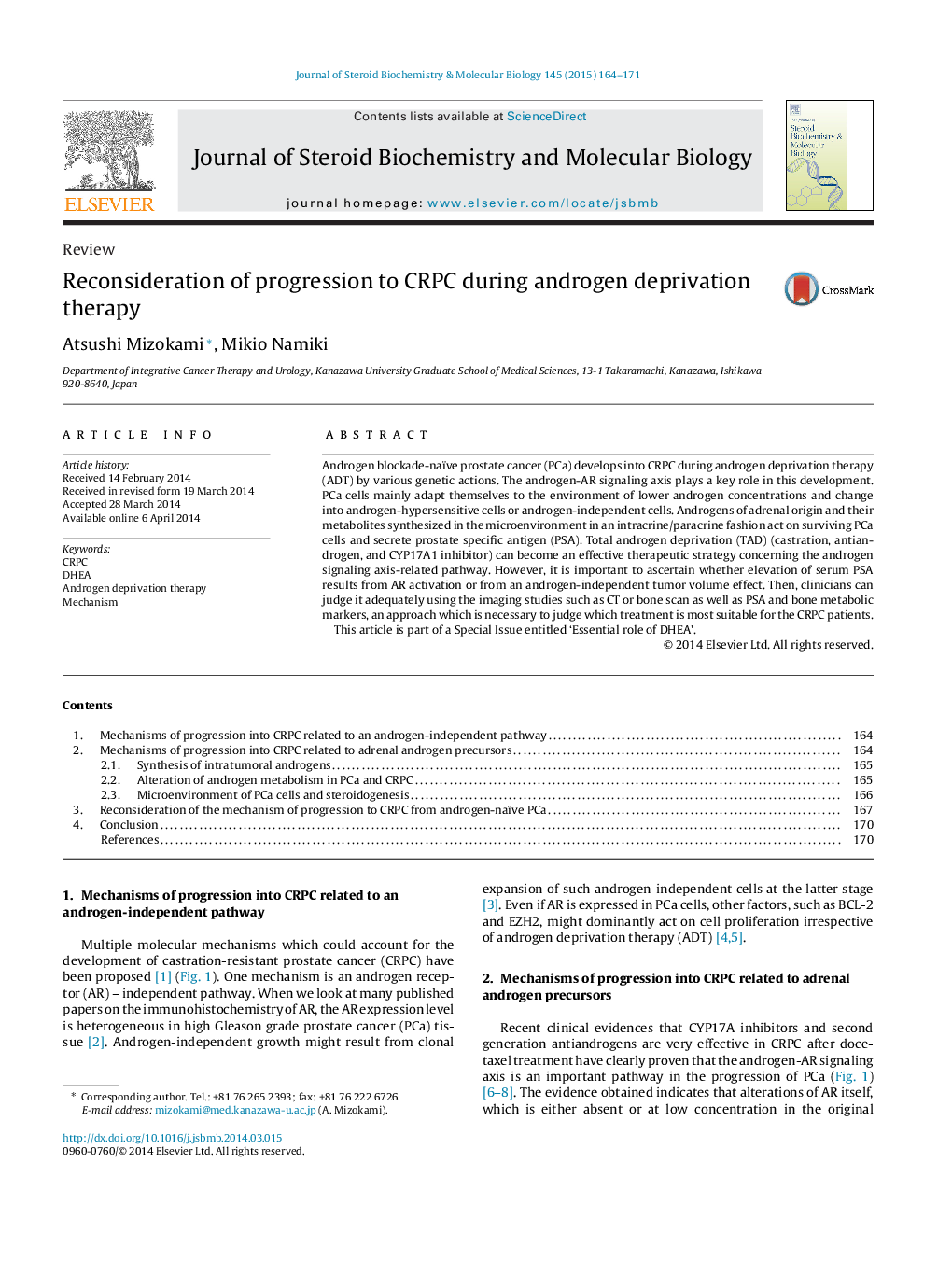| کد مقاله | کد نشریه | سال انتشار | مقاله انگلیسی | نسخه تمام متن |
|---|---|---|---|---|
| 1991455 | 1541004 | 2015 | 8 صفحه PDF | دانلود رایگان |

• Residual androgens from adrenal DHEA in PCa develop androgen-naïve PCa into CRPC.
• Total androgen deprivation is effective for CRPC even after docetaxel treatment.
• However, content of androgen insensitive cells is different in each patient.
• Physicians should judge content using the imaging such as bone scan as well as PSA.
Androgen blockade-naïve prostate cancer (PCa) develops into CRPC during androgen deprivation therapy (ADT) by various genetic actions. The androgen-AR signaling axis plays a key role in this development. PCa cells mainly adapt themselves to the environment of lower androgen concentrations and change into androgen-hypersensitive cells or androgen-independent cells. Androgens of adrenal origin and their metabolites synthesized in the microenvironment in an intracrine/paracrine fashion act on surviving PCa cells and secrete prostate specific antigen (PSA). Total androgen deprivation (TAD) (castration, antiandrogen, and CYP17A1 inhibitor) can become an effective therapeutic strategy concerning the androgen signaling axis-related pathway. However, it is important to ascertain whether elevation of serum PSA results from AR activation or from an androgen-independent tumor volume effect. Then, clinicians can judge it adequately using the imaging studies such as CT or bone scan as well as PSA and bone metabolic markers, an approach which is necessary to judge which treatment is most suitable for the CRPC patients.This article is part of a Special Issue entitled ‘Essential role of DHEA’.
Journal: The Journal of Steroid Biochemistry and Molecular Biology - Volume 145, January 2015, Pages 164–171